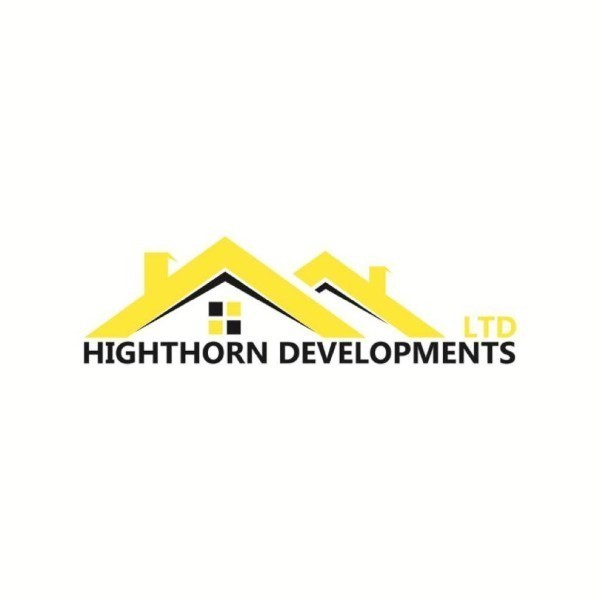Loft Conversions in Bishop Auckland
Filter your search
Post your job FREE and let trades come to you
Save time by filling out our simple job post form today and your job will be sent to trades in your area so you can sit back, relax and wait for available trades to contact you.
Post your job FREESearch Loft Conversions in places nearby
Understanding Loft Conversions in Bishop Auckland
Loft conversions in Bishop Auckland have become a popular choice for homeowners looking to expand their living space without the hassle of moving. This charming town in County Durham offers a unique blend of historical architecture and modern living, making it an ideal location for such home improvements. Whether you're considering a loft conversion to create an extra bedroom, a home office, or a cosy retreat, understanding the process and benefits is crucial.
What is a Loft Conversion?
A loft conversion is the process of transforming an unused attic space into a functional room. This can significantly increase the value of your home and provide much-needed additional space. In Bishop Auckland, where property prices are steadily rising, a loft conversion can be a wise investment.
Types of Loft Conversions
- Dormer Loft Conversion: This is the most common type, involving an extension of the existing roof to create additional floor space and headroom.
- Mansard Loft Conversion: Typically found in urban areas, this involves altering the roof structure to create a flat roof with a back wall sloping inwards.
- Hip to Gable Loft Conversion: Ideal for semi-detached or detached houses, this involves extending the hip roof to create a gable wall, increasing space.
- Velux Loft Conversion: The simplest and most cost-effective option, this involves installing Velux windows without altering the roof structure.
Benefits of Loft Conversions
Loft conversions offer numerous benefits, making them an attractive option for homeowners in Bishop Auckland. Firstly, they provide additional living space without the need for an extension, which can be costly and require planning permission. Secondly, they can significantly increase the value of your property, offering a high return on investment. Lastly, they allow you to customise your home to suit your needs, whether it's creating a master suite, a playroom, or a home office.
Cost Considerations
The cost of a loft conversion in Bishop Auckland can vary depending on the type and complexity of the project. On average, you can expect to pay between £20,000 and £50,000. Factors influencing the cost include the size of the loft, the type of conversion, and the materials used. It's essential to obtain quotes from multiple contractors to ensure you're getting the best value for your money.
Planning Permission and Building Regulations
In most cases, loft conversions in Bishop Auckland fall under permitted development rights, meaning you won't need planning permission. However, there are exceptions, such as if your property is in a conservation area or if the conversion involves significant structural changes. It's crucial to check with the local council to ensure compliance with all regulations.
Building Regulations
Regardless of planning permission, all loft conversions must comply with building regulations. These regulations ensure the safety and structural integrity of the conversion. Key areas covered include fire safety, insulation, and structural stability. Hiring a professional architect or builder familiar with these regulations can help streamline the process.
Choosing the Right Contractor
Selecting the right contractor for your loft conversion in Bishop Auckland is vital to the success of the project. Look for contractors with experience in loft conversions and a solid reputation in the community. Ask for references and view previous work to gauge their expertise. Additionally, ensure they are fully insured and offer a comprehensive warranty on their work.
Questions to Ask Potential Contractors
- How many loft conversions have you completed in Bishop Auckland?
- Can you provide references from previous clients?
- What is your estimated timeline for completion?
- Do you handle all aspects of the project, including design and planning permission?
- What is included in your quote?
Designing Your Loft Conversion
The design phase is where you can let your creativity shine. Consider how you intend to use the space and what features are essential. For instance, if you're creating a bedroom, you'll need to consider storage solutions and lighting. If it's a home office, think about desk space and connectivity. Working with an architect can help bring your vision to life while ensuring the design is practical and compliant with regulations.
Maximising Space and Light
One of the challenges of loft conversions is making the most of the available space and light. Consider installing skylights or dormer windows to flood the area with natural light. Built-in storage solutions can help maximise floor space, while clever use of colour and mirrors can create the illusion of a larger area.
Common Challenges and Solutions
Loft conversions can present several challenges, but with careful planning, these can be overcome. One common issue is limited headroom, which can be addressed by opting for a dormer or mansard conversion. Another challenge is ensuring adequate insulation, which is crucial for energy efficiency and comfort. Using high-quality insulation materials and sealing any gaps can help maintain a comfortable temperature year-round.
Dealing with Structural Issues
Structural issues can arise, especially in older properties. It's essential to conduct a thorough assessment of the existing structure to identify any potential problems. Reinforcing the floor joists and ensuring the roof can support the additional weight are critical steps in the conversion process.
Financing Your Loft Conversion
Financing a loft conversion can be a significant investment, but there are several options available to help manage the cost. Many homeowners in Bishop Auckland choose to remortgage their property or take out a home improvement loan. It's important to explore all financing options and choose one that suits your financial situation.
Budgeting Tips
- Set a realistic budget and stick to it.
- Include a contingency fund for unexpected expenses.
- Obtain multiple quotes to ensure competitive pricing.
- Consider phased payments to manage cash flow.
Environmental Considerations
With growing awareness of environmental issues, many homeowners are seeking eco-friendly solutions for their loft conversions. This can include using sustainable materials, installing energy-efficient windows, and incorporating renewable energy sources like solar panels. These measures not only reduce your carbon footprint but can also lead to long-term savings on energy bills.
Insulation and Energy Efficiency
Proper insulation is key to an energy-efficient loft conversion. Consider using eco-friendly insulation materials such as sheep's wool or recycled denim. Additionally, installing double-glazed windows and ensuring airtight seals can help maintain a comfortable temperature and reduce energy consumption.
Legal and Safety Considerations
Ensuring your loft conversion complies with legal and safety standards is paramount. This includes adhering to building regulations, fire safety standards, and any local council requirements. Hiring a qualified professional to oversee the project can help ensure all legal and safety considerations are met.
Fire Safety Measures
Fire safety is a critical aspect of any loft conversion. This includes installing smoke alarms, ensuring adequate escape routes, and using fire-resistant materials. Consulting with a fire safety expert can provide peace of mind and ensure compliance with all regulations.
Frequently Asked Questions
- Do I need planning permission for a loft conversion in Bishop Auckland? Most loft conversions fall under permitted development rights, but it's best to check with the local council.
- How long does a loft conversion take? On average, a loft conversion takes between 6 to 10 weeks, depending on the complexity of the project.
- Will a loft conversion add value to my home? Yes, a well-executed loft conversion can significantly increase your property's value.
- Can I live in my home during the conversion? In most cases, you can remain in your home, but there may be some disruption.
- What is the best type of loft conversion? The best type depends on your property's structure and your specific needs.
- How do I choose a contractor for my loft conversion? Look for experience, references, and a solid reputation in the community.
Loft conversions in Bishop Auckland offer a fantastic opportunity to enhance your living space and add value to your home. By understanding the process, benefits, and considerations, you can make informed decisions and create a space that meets your needs and lifestyle.








